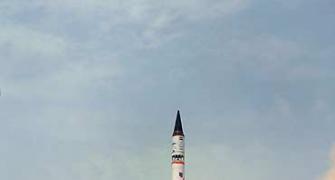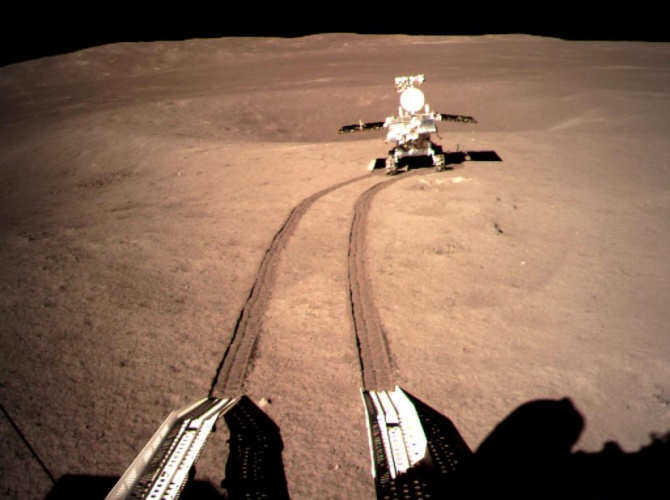 'The satellite used in the mission was one of India's existing satellites operating in lower orbit.'
'The satellite used in the mission was one of India's existing satellites operating in lower orbit.'
The Ministry of External Affairs has put out the details of Mission Shakti under which India shot down a satellite in space with a missile.
The MEA posted the details on its website as 'Frequently Asked Questions on Mission Shakti, India's Anti-Satellite Missile test conducted on 27 March, 2019'
Following are excerpts:
Details of the test
On March 27, 2019, India conducted Mission Shakti, an anti-satellite missile test, from the Dr A P J Abdul Kalam Island launch complex.
This was a technological mission carried out by the Defence Research and Development Organisation.
The satellite used in the mission was one of India's existing satellites operating in lower orbit.
The test was fully successful and achieved all parameters as per plans. The test required an extremely high degree of precision and technical capability.
The significance of the test is that India has tested and successfully demonstrated its capability to interdict and intercept a satellite in outer space based on complete indigenous technology.
With this test, India joins an exclusive group of space faring nations consisting of the United States, Russia and China.
The satellite and missile/interceptor used
The satellite used was an Indian satellite.
The DRDO’s Ballistic Missile Defence interceptor was used, which is part of the ongoing ballistic missile defence programme.
India used the technology of Kinetic Kill for the test despite the possibilities of other ways to demonstrate ASAT capabilities such as 'fly-by tests' and Jamming.
This is because it's a technology where we have developed capability. Space technologies are constantly evolving. We have used the technology that is appropriate to achieve the objectives set out in this mission, the MEA said.
Does the test create space debris?
The test was done in the lower atmosphere to ensure that there is no space debris.
Whatever debris that is generated will decay and fall back onto the earth within weeks.
Why the test was conducted and how was the time chosen
The test was done to verify that India has the capability to safeguard our space assets.
The tests were done after we had acquired the required degree of confidence to ensure its success.
India has seen an accelerated space development programme since 2014.
Ensuring that India has 'no intention of entering into an arms race in outer space', the MEA said, 'We have always maintained that space must be used only for peaceful purposes.'
'We are against the weaponisation of Outer Space and support international efforts to reinforce the safety and security of space based assets,' it said.
'India believes that Outer space is the common heritage of humankind and it is the responsibility of all space-faring nations to preserve and promote the benefits flowing from advances made in space technology and its applications for all,' it further said.
'India supported UNGA (United Nations General Assembly) resolution 69/32 on No First Placement of Weapons on Outer Space.
'We see the No First Placement of weapons in outer space as only an interim step and not a substitute for concluding substantive legal measures to ensure the prevention of an arms race in outer space, which should continue to be a priority for the international community,' it said.
The MEA said that the test is not directed against any country.
'India's space capabilities do not threaten any country and nor are they directed against anyone.
'At the same time, the government is committed to ensuring the country's national security interests and is alert to threats from emerging technologies.
'The capability achieved through the Anti-Satellite missile test provides credible deterrence against threats to our growing space-based assets from long range missiles, and proliferation in the types and numbers of missiles,' it said.
Image only for representation.







